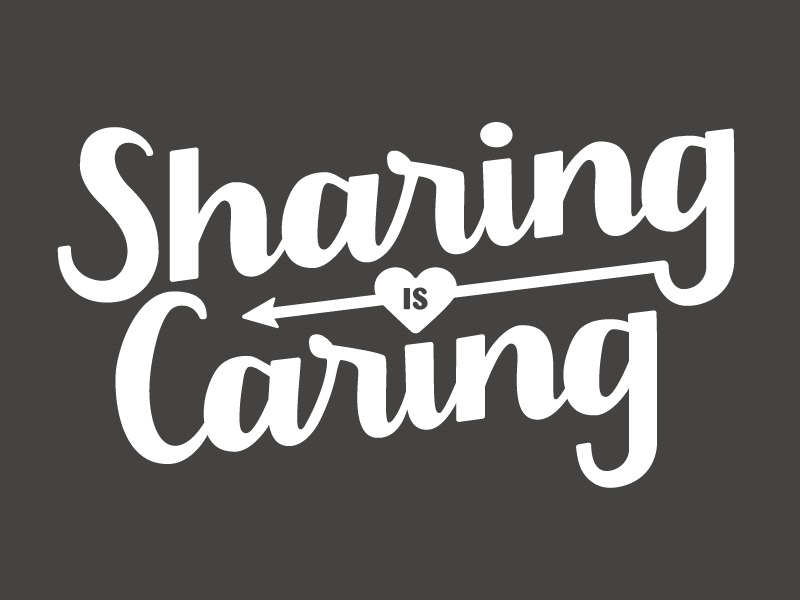Sharing is Caring

In a world often characterized by competition and individualism, the age-old adage “sharing is caring” remains a timeless truth that transcends cultures and generations. From childhood lessons to complex societal dynamics, the concept of sharing embodies profound implications for our personal relationships, communities, and the global society at large. In exploring the multifaceted nature of sharing, we uncover its intrinsic value in fostering empathy, building trust, and nurturing a more equitable world.
At its core, sharing is an act of generosity that extends beyond the mere exchange of material possessions. It reflects a willingness to partake in a collective experience, to recognize the interconnectedness of humanity, and to contribute to the well-being of others. From the simple gesture of sharing a meal with a friend to the more profound act of donating resources to those in need, sharing encapsulates a fundamental aspect of our humanity – the capacity for empathy and compassion.
Indeed, the act of sharing fosters empathy by allowing us to step into the shoes of others, to understand their needs, and to offer support in times of hardship. Whether it’s sharing our time, resources, or expertise, we cultivate a deeper sense of empathy when we actively engage in acts of sharing. In doing so, we bridge the gap between self-interest and altruism, cultivating a more compassionate society where individuals prioritize the well-being of others alongside their own.
Moreover, sharing serves as a cornerstone for building trust and fostering meaningful relationships. When we share openly and honestly with others, we demonstrate integrity and reliability, laying the foundation for trust to flourish. In personal relationships, the act of sharing vulnerabilities, dreams, and experiences creates bonds that withstand the test of time, fostering intimacy and mutual support. Similarly, in communities and organizations, a culture of sharing promotes collaboration, innovation, and collective problem-solving, as individuals work together towards common goals.
Furthermore, sharing plays a crucial role in addressing systemic inequalities and promoting social justice. In a world plagued by disparities in wealth, access to resources, and opportunities, sharing emerges as a powerful tool for redistributing resources and empowering marginalized communities. Whether through initiatives such as wealth redistribution, resource-sharing programs, or equitable distribution of opportunities, sharing becomes a means of dismantling barriers and creating a more just society where everyone has the chance to thrive.
However, in a hyper-individualistic society driven by consumerism and competition, the virtues of sharing are often overshadowed by notions of self-interest and accumulation. The pervasive culture of “me first” promotes a scarcity mindset, where individuals hoard resources out of fear of scarcity, perpetuating cycles of inequality and isolation. Yet, it is precisely in times of scarcity and uncertainty that the importance of sharing becomes most evident, as communities come together to support one another and overcome adversity.
In light of global challenges such as climate change, poverty, and pandemics, the imperative for sharing becomes increasingly urgent. Addressing these complex issues requires collective action, solidarity, and a willingness to share resources and knowledge for the greater good. Whether it’s sharing technology to combat climate change, sharing vaccines to end pandemics, or sharing resources to alleviate poverty, the challenges of the 21st century demand a paradigm shift towards a culture of sharing and cooperation.
Moreover, the digital age has revolutionized the way we share information, ideas, and experiences, enabling unprecedented opportunities for collaboration and collective learning. Social media platforms, online forums, and digital communities serve as virtual spaces where individuals share knowledge, resources, and support across geographic boundaries. Yet, amidst the vast sea of information, the ethos of sharing must be grounded in authenticity, empathy, and reciprocity, fostering meaningful connections and nurturing a culture of trust and respect.
Conclusion
Sharing is far more than a simple act of generosity – it is a fundamental principle that underpins our humanity and shapes the fabric of society. From nurturing empathy and building trust to promoting social justice and collective action, sharing embodies the values of compassion, solidarity, and mutual respect that are essential for a more equitable and sustainable world. As we navigate the complexities of the modern age, let us heed the timeless wisdom that sharing is caring, and embrace the transformative power of generosity in creating a brighter future for all.





